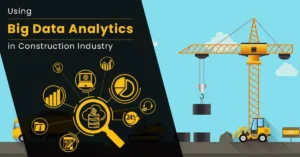Chances are you’ve heard variations of the phrase “data is the new oil” at least once. It is now credited to Clive Humby, a British mathematician who coined the phrase in 2006. But the concept really made its move into the zeitgeist through an article in The Economist in 2017. While at that time the sense of the ubiquity of data was just emerging into the public conseciousness, now it’s impossible not to see that information is swirling all around us. And it’s increasingly recognized as the engine that drives every modern business. By extension, if data is the new oil, analytics is its main refinery.
While data analytics is a concept that every business leader should be acquainted with, getting into the details can feel like a daunting task. But with recent breakthroughs in AI, there’s no time to lose. Let’s sort through this essential business activity to learn what it is, how it’s conducted, and how you can use it to maximize this valuable resource.
Data Analytics: Definition By Example
Data analytics is the process of collecting, cleaning, processing, analyzing, and interpreting data to gain insights from the information and synthesizing the knowledge it contains. This can sound rather confusing, but it’s much easier to understand when framed by example.
Let’s imagine you’re running several ad campaigns to attract leads and boost sales conversions in your business. Are you going to trust that your ads are performing as anticipated without verifying? No! You need to analyze the resulting data that is an output from that business process to see what’s working and what could be improved. Information such as website click-throughs, purchases, wish lists and more can be collected, processed, and interpreted to gain a better understanding of which portions of the sales “pipeline” are more or less efficient. With this information, you can then apply what you’ve learned to the business process to create a better experience for your customers and a better outcome for your bottom line.
Of course this simple e-commerce example is one of an infinite variety of scenarios that casts a different shadow on the chosen domain. Factors such as the industry, company, department and even each user has business goals and needs to address. And while that can seem overwhelming to consider at first, Rower has an effective set of techniques to help you survey the challenges and opportunities, and then quickly start to make use of its full potential.
Approaching Data Analytics Waypoints
There are countless tools and processes used to organize data. Everyone has their own chosen method of gathering their source information as well as tools and applications that help them understand it in greater depth and with fresh perspectives. Some sub-disciplines establish their own “terms of art” that can sound quite arcane, but there are also general notions that have become part of the broader information landscape, and are worth introducing here as a starting point.
Acquainting with these high-level concepts will help you understand where your systems currently reside. This outline also serves as a goal setting benchmark as you design the next stage of evolution for your organization’s data. These common analytics ‘waypoints’ include:
- Descriptive analysis: A technique designed to summarize and describe quantitative data through statistics. For example, you might use this to better understand the average sales numbers for each division of your company.
- Diagnostic analysis: This approach answers the question of “why” around your data. For example, you might use diagnostic analysis to better understand why there was an increase in warranty repairs for a product your company offers.
- Predictive analysis: A technique that leverages past data to make future predictions. We’ve all seen the results of this when using an online retail site – where adding a product to a shopping cart triggers a follow-on suggestion to add related items, perhaps even with discount or bundling offers. This result is based on the company analyzing the data of past purchases by other customers and using that to infer what you might want to buy next.
- Prescriptive analysis: This uses a forward-looking approach can be vital to sucess or profitability in various business contexts. Consider the case of a large business with a fleet of vehicles. A prescriptive analysis technique would be to determine the optimal route for a delivery truck to reach its destination. While it would likely start with the availability status of your company’s fleet of vehicles, this could grow to involve analysis of outside information including traffic patterns, weather forecasts, and review of near-term changes in business conditions to ensure the most efficient outome.
Given the variety of tooling available, and the specific terminology that often comes along, the learning process can seem unending. But the terms above hold as mainstays in the common lexicon of “the data world”. These terms provide a good starting point for conversation and help new folks gain their bearings. And when you’re ready for the next step in the journey, Rower has a broad range of experience with several “families” of tools in this domain, and we’re ready to discuss specific technology options when you are.
While “Data is the New Oil” is still an attention-grabbing phrase today, the metaphor has been shown to have its limits. And with that, “analytics is the new refinery” quickly loses its luster. First and most importantly, data is a renewable resource. It doesn’t have the same scarcity element of oil, and in fact it’s reusability is part of its power as the lifeblood of your business. Along those lines, Rower has shifted to use terms like “culivation” more akin to a gardening or farming metaphor. Having an actively managed decision platform for your business often means culivation is just as important as knowledge extraction. And regardless of the metaphor you choose, Rower has both domain experience and tooling expertise to help you succeed.
Get More From Your Data With Rower Consulting
Are you looking to better understand your data landscape? Rower Consulting is here to help! We provide a wide range of data and systems services to help you respond to the complex demands of your business. Schedule a meeting with us today to discuss your path forward!




